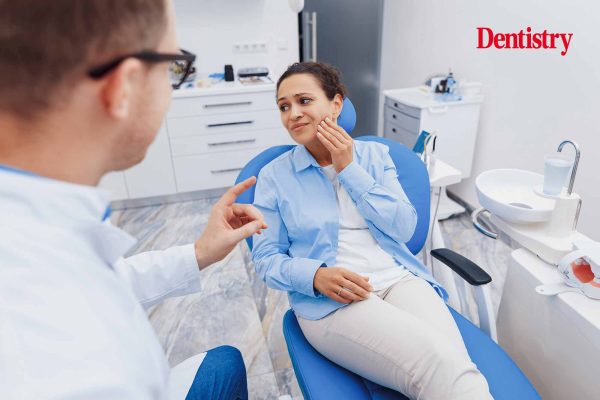Surina Sehgal explains how dental professionals can ensure a healthy oral cavity, despite patients experiencing medically compromised and vulnerable mouths.
When it comes to mouths, it’s not just the teeth that are sensitive. The soft tissues too can become sore or uncomfortable for a variety of reasons.
Patients with medically compromised mouths and also those with aphthous ulcers, lichen planus or dry mouth are more prone to soft tissue irritation. This is very uncomfortable for the patient.
Being vulnerable or medically compromised means that as healthcare professionals we should provide special care and consideration when providing treatment or health advice.
Here I outline how mouths can become sensitive or vulnerable and how this links to overall oral health. As well as what we as professionals can do to help.
Who is medically compromised/vulnerable?
Several medical conditions and drugs can affect teeth, gums and the soft tissues of the mouth.
These include high blood pressure, heart disease, diabetes, kidney/lung disease, osteoporosis, rheumatoid arthritis, cancer patients, pregnancy, eating disorders, patients on several medications and many more.
These patients are more susceptible to developing cavities, periodontal disease and require specific attention to help prevent these oral diseases.
How does this affect oral health?
One of the main ways that these diseases can affect our oral health is through decreased salivary flow.
Salivary flow has a direct link to balanced oral health. A commonality in medically compromised patients is that they experience xerostomia (dry mouth) as a result of their illness or as a side effect of treatment/medication.
A dry mouth creates an ideal environment for pathogenic microorganisms to develop, live, and multiply. This can further complicate patients’ health by increasing the risk of other inflammatory diseases.
There is strong research to show direct links between periodontal disease and systemic health.
With a decrease in salivary flow, there is an increase in pathogenic biofilm. This means more oral inflammation which in turn links to gum disease, bone loss, tooth loss and caries.
In the medically compromised patient’s oral environment, natural remineralisation and protection are diminished due to reduced free salivary calcium and phosphate ions as a result of decreased salivary production and flow.
In addition to the risks to their oral health, these patients can experience significant discomfort and soreness. This is a result of reduced lubrication and moisture in the mouth.
Conditions of the soft tissues of the mouth
Conditions specific to the mouth can also be a source of pain and discomfort for some patients. The following conditions are commonly found in an intraoral examination.
Aphthous ulcers
This ulcer is the most common ulcerative condition of the oral mucosa. It presents as a painful punched out sore on oral mucous membranes. Twenty per cent of the population have one or more, at least occasionally.
They can be a manifestation of systemic disease. However, the exact reason why an aphthous ulcer develops is unclear.
Children are also susceptible to mouth ulcers. Research shows those who have a weakened immune system, several allergies, high stress environment, poor nutrition, certain medication can play a part in the development of mouth ulcers.
Lichen planus
This is a chronic inflammatory condition that affects 1-2% of the population. Oral lichen planus presents in different forms: reticular, atrophic/erosive, plaque like and sometimes is of mixed types.
Soft tissue irritation can have a detrimental impact on a patient’s oral hygiene. This is due to the discomfort of using a toothbrush or certain products in the mouth.
The goal of managing these oral soft tissue conditions is to ease symptoms for patients. And to recommend certain products that can help improve their oral hygiene experience.
How can dentists help?
Biofilm removal and control is an essential part of oral health. In addition to regular hygiene visits and regular brushing, interdental plaque removal is essential.
Carrying out topical fluoride treatment and recommending patients high fluoride treatments can aid in the prevention of caries.
Using specific oral care products is also important to protect the mouths of those who are medically compromised. One ingredient, SLS (sodium lauryl sulfate) should be avoided for those with sensitive/vulnerable mouths.
SLS is a foaming agent and there are some studies to show this is a skin irritant for some. It can cause ’tissue sloughing’ when the skin of the inner cheeks can peel resulting in an irritated sensation (Green et al, 2019).
We can encourage our patients to choose certain oral care products that are beneficial for oral health, but take into consideration the oral soft tissues. Choosing SLS-free products such as Zendium toothpaste, is appropriate for sensitive mouths. It helps to avoid skin irritation.
Zendium is a fluoride toothpaste and is both SLS-free and is kind to the delicate tissues in the mouth. It contains natural enzymes and proteins found in saliva, to help boost the mouth’s natural defences gently yet effectively.
As dentists, it is our duty to ensure we are tailoring our advice to a patient’s specific needs. We must take into account their medical history, their lifestyle and conditions, which will alter our preventative advice to them.
Dr Surina Sehgal is a dentist at Wallingford House Dental Practice in Oxfordshire. Follow her on Instagram @thefoodie_dentist.
For more information on Zendium, visit www.zendium.co.uk.
Reference
Green A, Crichard S, Ling-Mountford N, Milward M, Hubber N, Platten S, Gupta AK and Chapple ILC (2019) A randomised clinical study comparing the effect of Steareth 30 and SLS containing toothpastes on oral epithelial integrity (desquamation). J Dent 80(1): S33-9


